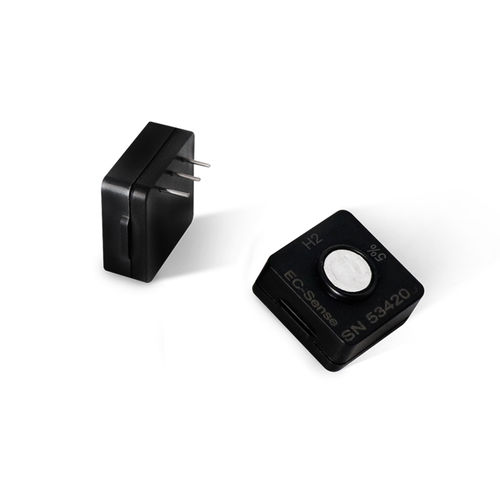
#Industry News
Industrial Safety with Electrochemical Gas Sensors
Industrial Safety Gas Detection Using Solid Polymer Electrochemical Gas Sensors: Reliable Monitoring Solutions
What is Industrial Safety Gas Detection with Electrochemical Gas Sensors?
Industrial safety involves protecting people, equipment, and the environment from potential harm in workplace settings. In the context of ‘industrial safety gas detection’, this means identifying and mitigating risks associated with the release of hazardous gases from gas bottles, tubing, valve manifold boxes, or machinery.
Gas leaks pose significant threats, including severe harm to personnel, damage to equipment (e.g., corrosion from toxic gases), and environmental hazards. Additionally, many industrial gases are flammable, self-igniting, or explosive, making early detection critical to preventing catastrophic events.
Electrochemical sensors are valued for their high sensitivity, accuracy, and ability to detect low gas concentrations, making them suitable for industrial safety applications.
What are the typical applications for industrial safety applications?
Industrial safety applications are essential for ensuring the safety of workers, equipment, and the environment across various industries. In the petrochemical industry, monitoring flammable and toxic gases in refineries, chemical plants, and storage facilities helps prevent accidents. In mining, detecting gases such as methane and carbon monoxide is critical to preventing explosions and safeguarding miners. In manufacturing, gas sensors protect workers from exposure to hazardous chemicals and toxic gases, ensuring safe operations. In warehousing, these systems identify leaks of flammable or toxic gases from stored materials, preventing fires or harmful exposure. In pharmaceutical and laboratory settings, detecting gases like ammonia or hydrogen chloride used in synthesis or research processes ensures the safety of personnel. In the food and beverage industry, monitoring carbon dioxide levels in breweries, soft drink plants, and cold storage facilities maintains safe working conditions. Similarly, in power generation, gas sensors detect hydrogen leaks in turbine systems or monitor toxic emissions from power plants to ensure operational safety.
Why Use Solid Polymer Electrochemical Gas Sensors?
Solid polymer electrochemical gas sensors are particularly advantageous for industrial safety due to their accuracy and precision in detecting low concentrations of toxic gases like carbon monoxide, chlorine, or hydrogen sulfide. These sensors are cost-effective compared to alternative technologies such as infrared or semiconductor sensors. Their compact design makes them easy to integrate into both portable and fixed detection systems, while their durability ensures reliable performance in harsh industrial environments. Effective gas detection systems powered by technologies like electrochemical sensors mitigate risks, ensure compliance with safety regulations, and foster secure working environments.
Which Gases need to be monitored in industrial safety applications?
Key gases that need to be monitored in industrial safety applications include toxic gases such as carbon monoxide (CO), hydrogen sulfide (H₂S), ammonia (NH₃), sulfur dioxide (SO₂), nitrogen dioxide (NO₂), total volatile organic compounds (TVOC), and formaldehyde (HCHO); corrosive gases such as hydrogen chloride (HCl), hydrogen fluoride (HF), chlorine (Cl₂), fluorine (F₂), chlorine dioxide (ClO₂), and ozone (O₃); and combustible gases like hydrogen (H₂).
What are the Advantages of EC Sense Industrial Safety Gas Sensor Products?
For industrial safety monitoring, solid polymer gas sensors offer numerous advantages, including a lower detectable limit of 1 ppb / 1 µg/m³ and fast response times. These sensors feature a small size, a long lifetime exceeding three years, no warm-up time, and no zero-line drift. Gas sensor modules are designed to detect gas, temperature, and humidity while providing digital signal outputs via UART (TTL 3.3 V) or I2C. They also offer low power consumption with sleep mode, making them suitable for battery-powered and IoT applications, and function effectively in a wide temperature range of -40°C to +55°C.
Which Solutions can EC Sense offer for Life Safety Applications?
EC Sense offers a range of solutions for life safety applications. Their product line includes ES1, ES4, and EC4 Gas Sensors designed for portable and fixed gas detection systems. The TB420 analog Gas Sensor modules come with intrinsic safety certification and standard 4-20 mA outputs, while the StoxPro Smart Gas Sensor Device features a compact design with an IP66 rating, intrinsic safety certification, RS485 and 4-20 mA outputs, and sensor service lifetime testing. These solutions are tailored to meet the demanding requirements of industrial safety applications.
Which Technology makes EC Sense Sensors special?
The EC Sense solid polymer electrochemical technology is a revolutionary innovation in the field of electrochemical detection. This technology is based on the principle of electrochemical catalytic reaction, detecting the output signals of the electrochemical reactions of different gases and accurately measuring the gas concentration through the signal. The sensor is composed of three electrodes in contact with the electrolyte. A typical electrode consists of a large surface area of noble metal and other materials. The electrode, electrolyte and the surrounding air are in contact and the gas diffuses into the working electrode. Here the gas will be oxidized, this causes a current, which is proportional to the gas concentration.








